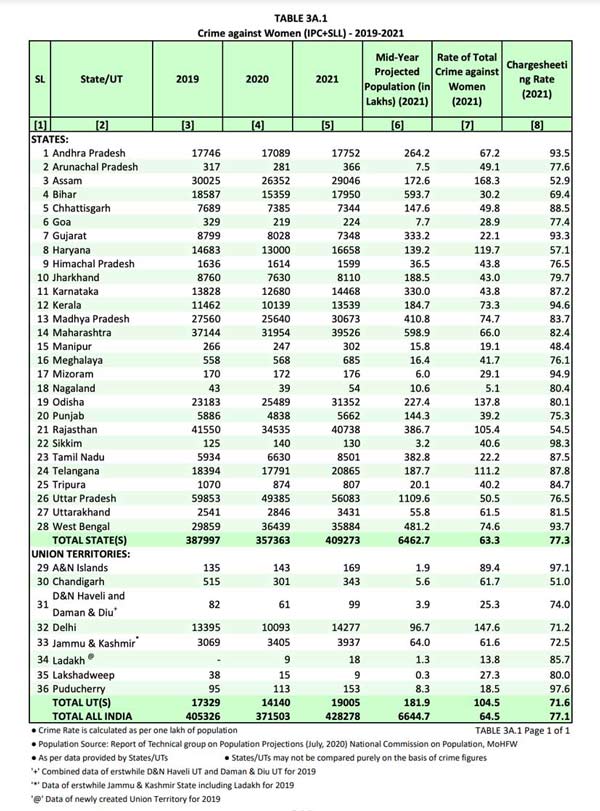Overview:
- Stalking is an offense under the Indian Penal Code, but in practicality, it is often taken lightly.
- Bollywood culture and media further normalize and glorify stalking as teasing or pursuing the female protagonist.
- Stalking is a gender-neutral crime and needs to be seen that way by both law and society.
The ‘Normality’ of Stalking in India
In India, a country marked by its patriarchal structure, crimes against women are on the rise. Despite its severity, stalking is often downplayed and treated as a minor concern. Section 354D of the IPC, 1860 was put in place to protect women from this offense.
Stalking is quite prevalent in India. However, in most cases, the normalization of stalking as mere “teasing” or inappropriate behavior, rather than an alarming act, perpetuates its prevalence. Due to the fear of being stalked, some women often avoid venturing out in public spaces alone.
While stalking is a punishable offense under the IPC, its flaws need to be addressed to provide relief to the Indian populace.

Reel vs. Real: The Distorted Portrayal of Stalking in Cinema
Popular culture in India has inadvertently glorified stalking, with Bollywood movies often romanticizing the act as a means of pursuing a love interest. This cinematic portrayal contributes to a lack of seriousness surrounding the crime until it escalates into more horrific acts.
Stalking is frequently utilized to demonstrate the toughness and masculinity of action heroes.
Popular Bollywood movies like Raanjhanaa and Badrinath ki Dulhania have multiple scenes of stalking and harassment, fostering male entitlement and patriarchal views.
Stalking involves the unwelcome physical or online pursuit of an individual with the intention of establishing personal contact, even after objections have been raised. While stalking is punishable, it remains a bailable offense, posing a significant threat to victims’ mental and physical well-being.
Victims of stalking often experience stress and social anxiety, are forced to relocate or change professions, and at times even conceal arms.
Grievous Upcomings
The statistics are grim. According to the 2021 Crime in India, data released by the National Crime Records Bureau, a stalking case is reported every 57 minutes. The crime has seen an exponential rise from 4,699 in 2014 to 9,285 cases in 2021.
Stalking is a highly under-reported crime, with societal norms, failure to file an FIR, and fear of revenge contributing to a likely higher number.
The police sometimes press for compromise between victims and stalkers, allowing the latter to become more aggressive once released on bail. Cases of gruesome violence stemming from stalking are distressingly common.
A July 2022 news article by The Times of India mentioned the instance about a girl who was stabbed by a man, who had been aggressively following and harassing her for two years.
In another horrifying case published in The News Minute a 22 year-old girl’s life came to an end, when her stalker pushed her in front of an oncoming train. Stalking’s repercussions extend beyond immediate harm, often culminating into dire consequences.

Every Person is at Risk
Under Section 354D of the IPC, stalking is a bailable offense in the first instance despite the fact that many stalkers strike back and attack their victims to exact revenge. The retribution could take the form of sexual assault and in extreme cases lead to rape, murder, or threats to the woman’s safety and well-being. Therefore, it should not be subject to bail.
The law must not be confined to safeguarding women alone, but also assure protection and representation to men as well as other genders.
Utilizing gender-neutral terminology in legislation is of paramount importance.The definition of stalking under Section 354D is gender-specific. It does not recognize men, trans people, and other gender minorities as victims of stalking.
While the Protection of Children from Sexual Offences Act (POCSO Act) safeguards boys under 18, it lacks explicit provisions for adult males and transgenders.
In 2019, a 22-year-old man’s location was traced via Instagram, leading to his stalking, abduction, and assault. In another case, a female and a trans man were assaulted.
Although the police invoked multiple sections, including Section 354D (1), the filed case only addressed the female’s assault, ignoring the trans man’s ordeal. Upon the woman’s attempt to caution the attackers about the consequences of assaulting a transgender individual, they resorted to making offensive and inappropriate comments.
The above cases are clear indications that men and other gender minorities can be victims too. Necessary amendments that address the crime against men and other genders is the need of the hour.
Legal and Societal Changes for Safer Individuals
If the gender-specific terms like “man” and “woman” are replaced with gender-neutral terms like “person,” it will create an appropriate legal provision to protect gender minorities from the crime of stalking.
The addition of the strictly non-bailable clause is also essential in order to protect victims from the violent retribution of the perpetrators.
We all live in a progressive society where the definition of gender is dynamic. Hence, it is necessary that our legal system is accommodative and robust in order to safeguard the legal rights of all genders.
Gender-neutral laws are not only important to ensure equality in society but also to provide everyone with a sense of security. Gender neutrality, when practiced in its true sense, helps in creating a balance in society.
Therefore, stalking should be considered a crime committed against a person and not only a woman.
Conclusion:
Laws are put in place to safeguard individuals. However, we find that in several instances it defeats its main purpose of protecting innocent individuals. The prevalence of stalking and its dangerous consequences necessitate a shift in societal attitudes and legal measures.
It is high time stalking is taken seriously and not normalized.



